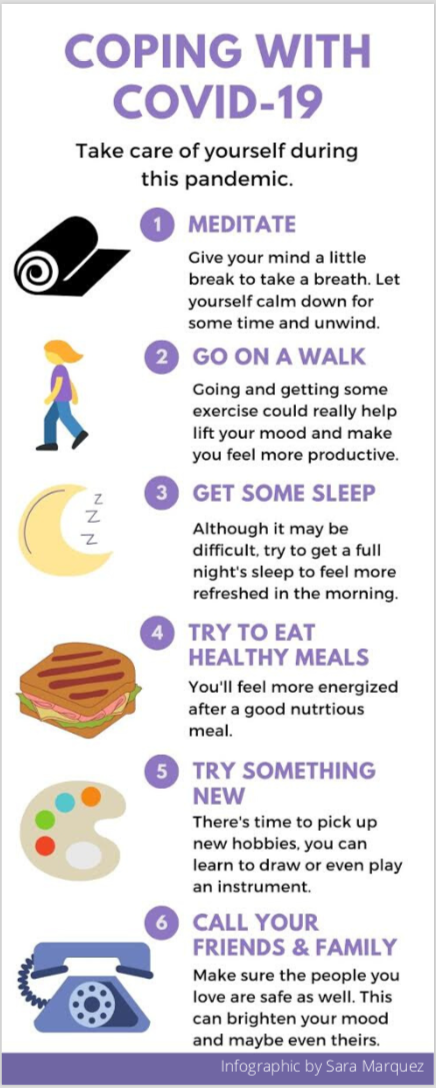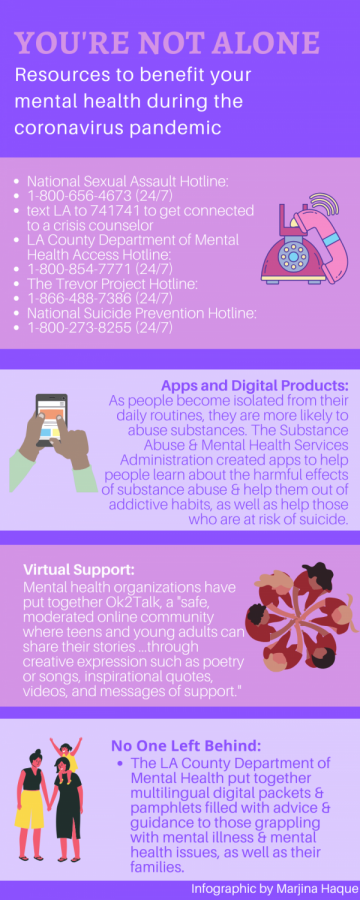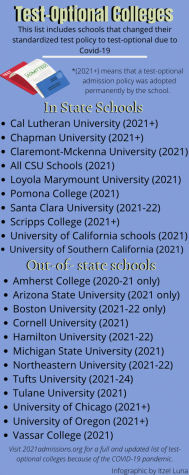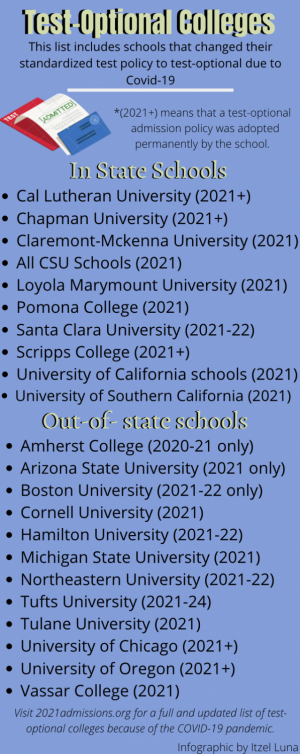Coronavirus pandemic impacts students’ mental health
May 14, 2020

Amid the chaos of siblings running around and the dog’s barking, students have to find a way to focus on their online work and get their assignments done before due dates regardless of the situation.
“It is a bit more stressful having to do all my school work at home because it’s easy for me to get distracted easily,” junior Brenda Zaragoza said. “I don’t really have my own space since my siblings are always around.”
Since having transitioned to remote learning after schools closed on March 13 due to the coronavirus pandemic, students have different experiences with this new learning environment. Some have shown a liking to this new online classroom while others have fallen into distress trying to juggle all of their at-home activities and responsibilities along with school. Considering May is Mental Health Awareness Month, teens are taking a huge hit mentally with this ongoing situation. Not to mention that many teenagers have a front-row seat in watching their parents struggle during these tough times. Anxiety and depression have ramped up among teens with these stay-at-home orders.
With coronavirus taking up most of the news, people with anxiety may be on edge and constantly fearing that they could be infected. Those with depression may be falling into a hole where they see no light at the end of this pandemic. Most of the time, interaction can be seen as a coping method but in this case, that isn’t an option.
After a recent survey conducted by the American Civil Liberties Union, it showed that 32% of students’ mental health needs had risen after this whole situation. This rise has created pondering thoughts for those newly graduated as well. There’s a hole where guidance used to present themselves as counselors at school.

“This new way of learning lacks the one-on-one attention that a student can receive in the moment they don’t understand something,” social worker JoAnne Tuell said. “I urge students to reach out to their teachers.”
Interacting with teachers and being in a school environment gave students an extra push of motivation to continue their learning and stay on task. Without this, students are responsible for their own motivation and held accountable to keep up with their work via remote learning. This in itself can create more stress on teens.
“Now, I’ve reached a point where I’m only really stressing over my APs and I’m kinda neglecting my other classes,” junior Susannah Ness said.
Not only has this virus found its way into a teen’s mind but it also found its way to attack parent figures in the house. About 3 million people in the U.S. have lost their jobs as a result of this pandemic. Although parents may avoid showing their distress, teenagers are old enough to be aware of this economic situation. Others may also face the stress of worrying about parents who continue their jobs as essential workers which put them at risk for infection.
“Some other stressors I’ve been dealing with are worrying about my parents’ safety while they’re at work,” Ness said. “She (mom) has to go to the office for her sessions because they deal with sensitive client information.”
Everyone’s lives have changed drastically because of this virus and because of this, teens are coping differently. No longer being able to go out and see friends can cause an isolated feeling that may lead to or increase depression. Interaction was one of the key methods that helped reduce depression and anxiety but considering the situation, the only interaction possible at the moment is through a screen.
“We, as students, are hoping it doesn’t affect our next school year because this is way too much weight on our shoulders,” sophomore Audrina Murphy said.
The Class of 2020 has particularly been hurt by having to deal with the loss of their senior year. Practically in mourning, seniors have been expected to continue their learning without the satisfaction of being rewarded with a grad night or even prom. For first-generation graduates, this final year was the compensation of all their hard work. To their parents, it would’ve been their first time seeing someone walk the stage but it was taken from them because of the virus.
“I don’t get to spend the last few months with my best friends, all the stories of senior year being the best year in high school that I don’t get to experience,” senior Mia Garcia said.
This being said, studies have shown that an adolescent that experiences a national trauma is most likely to not recover from the experience. It makes them more susceptible to fall into depression and anxiety. Many had been dreaming of this day and it was stripped from them at the last minute, this is bound to create a gash in their mind. Without all the senior festivities, some students may have even given up hope in participating in school anymore.
In this whirlwind of news, there are many ways to ease this issue for teens and make the situation a bit better for them. Tuell has posted on Schoology about all sorts of resources for any student who may need help and constantly reminds everyone that she is free to talk to students if needed.
“I also think it is very important to reach out to friends, call your elderly family members,” Tuell said. “It not only helps you, but it will help brighten up someone else’s day.”
























